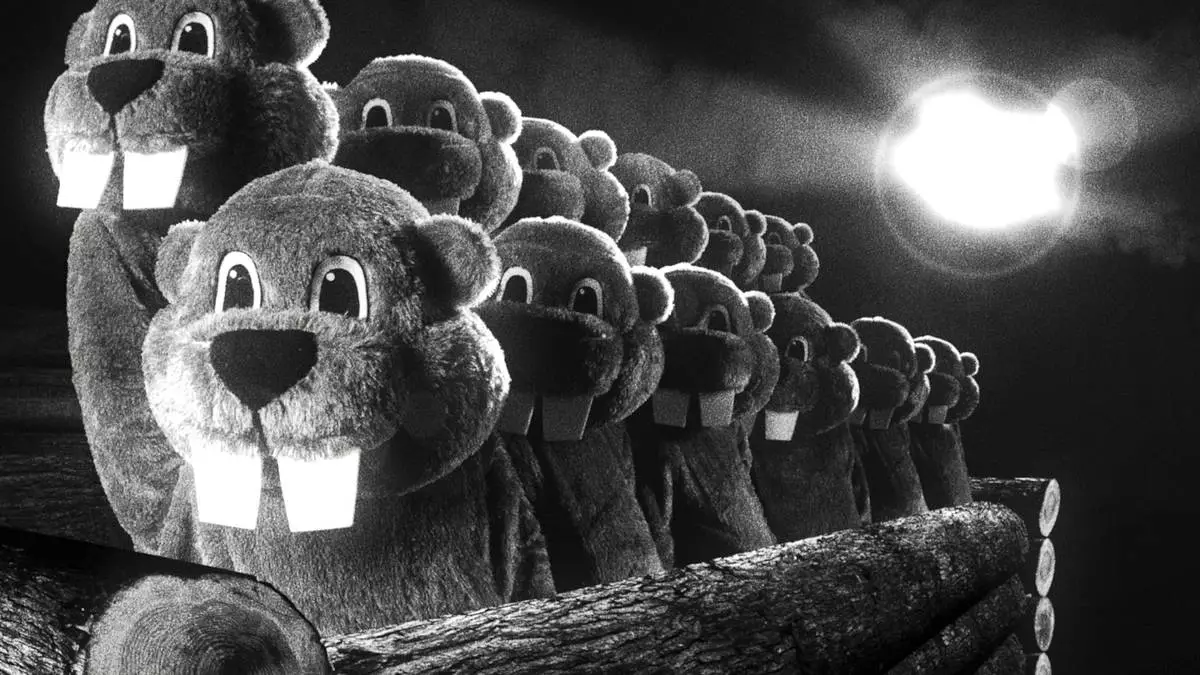THE HAGUE (AP) — Pro-Palestinian activists told a Dutch court on Friday that the Netherlands is violating international law by selling weapons to Israel, a day day after the International Criminal Court issued an arrest warrant for Israeli Prime Minister Benjamin Netanyahu for alleged war crimes.
If The Hague District Court supports the complaint, the Netherlands will be banned from sending weapons or weapons parts to Israel and trading with the occupied territories. The Netherlands has already halted the export of F-35 fighter jet parts to Israel following a similar case earlier this year.
“The government uses my own tax money, that I pay, to kill my own family. I’ve lost 18 members of my own family,” Ahmed Abofoul told a full courtroom. Abofoul is the legal adviser for the pro-Palestinian organization Al-Haq, one of the 10 groups who sued the government.
The Dutch state denies it is in violation of the 1948 Genocide Convention, drawn up following World War II. “Every cooperation is cautiously weighed,” government lawyer Reimer Veldhuis said, arguing the court should not take the role of the state in setting foreign policy.
The treaty requires signatories to do everything they can to prevent and punish genocide.
The activist groups pointed to several emergency orders from another court, the International Court of Justice, as confirming the obligation to stop weapons sales. In January, the top U.N. court said it was plausible Palestinians were being deprived of some rights protected under the Genocide Convention.
“This is the result of the complicity of governments for decades,” Abofoul told reporters after the hearing. The court will rule on Dec. 13.
On Thursday, the world’s only permanent international criminal court issued arrest warrants for Netanyahu, his former defense minister and Hamas’ military chief, accusing them of crimes against humanity in connection with the 13-month war in Gaza.
The warrants said there was reason to believe Netanyahu and former Defense Minister Yoav Gallant have used “starvation as a method of warfare” by restricting humanitarian aid and have intentionally targeted civilians in Israel’s campaign against Hamas in Gaza — charges Israeli officials deny.
Dutch Foreign Minister Caspar Veldkamp, whose country hosts the court, confirmed The Netherlands would arrest Netanyahu if he arrived on Dutch soil.
“The line from the government is clear. We are obliged to cooperate with the ICC and we will also do that. We abide 100% by the Rome Statute,” he said in response to a question in parliament.
Hard-right leader Geert Wilders, whose party became the biggest after Dutch elections last year, condemned the warrants. He said on social media that he plans to visit “my friend” Netanyahu in Israel soon, showing further cracks in the country’s four-party coalition that almost collapsed last week.

FILE - Exterior view of the International Criminal Court, or ICC, in The Hague, Netherlands, on April 30, 2024. (AP Photo/Peter Dejong, File)
NEW YORK (AP) — Hard as it may be to believe, changing the future of cinema was not on Mike Cheslik’s mind when he was making “Hundreds of Beavers.” Cheslik was in the Northwoods of Wisconsin with a crew of four, sometimes six, standing in snow and making his friend, Ryland Tews, fall down funny.
“When we were shooting, I kept thinking: It would be so stupid if this got mythologized,” says Cheslik.
And yet, “Hundreds of Beavers” has accrued the stuff of, if not quite myth, then certainly lo-fi legend. Cheslik’s film, made for just $150,000 and self-distributed in theaters, has managed to gnaw its way into a movie culture largely dominated by big-budget sequels.
“Hundreds of Beavers” is a wordless black-and-white bonanza of slapstick antics about a stranded 19th century applejack salesman (Tews) at war with a bevy of beavers, all of whom are played by actors in mascot costumes.
No one would call “Hundreds of Beaves” expensive looking, but it’s far more inventive than much of what Hollywood produces. With some 1,500 effects shots Cheslik slaved over on his home computer, he crafted something like the human version of Donald Duck’s snowball fight, and a low-budget heir to the waning tradition of Buster Keaton and “Naked Gun.”
At a time when independent filmmaking is more challenged than ever, “Hundreds of Beavers” has, maybe, suggested a new path forward, albeit a particularly beaver-festooned path.
After no major distributor stepped forward, the filmmakers opted to launch the movie themselves, beginning with carnivalesque roadshow screenings. Since opening in January, “Hundreds of Beavers” has played in at least one theater every week of the year, though never more than 33 at once. (Blockbusters typically play in around 4,000 locations.) More than half of its approximately $500,000 in ticket sales came after the movie went to video-on-demand.
Daniel Scheinert, the co-director of the best picture-winning “Everything Everywhere All at Once,” recently called “Hundreds of “Beavers” “the future of cinema.” That bold pronouncement, which ricocheted around film blogs, might seem extreme for a movie about a guy wearing a comically large beaver hat.
But in a shrinking movie industry, DIY microbudget filmmaking may increasingly be left to fill some of the void left by risk-adverse, corporate-driven Hollywood.
“I hope people can stop shooting things to make them look like commercials and just get back to more of the nitty gritty and letting your imagination flow,” says Tews, who also co-wrote the movie with Cheslik. “I just hope we stop bowing down to Hollywood and thinking they’re the gold standard. Because they just aren’t.”
The year-to-date box office in North America is down 11% from last year and about 25% from before the pandemic. More movies are making a tiny impact in theaters; according to Franchise Entertainment Research, 41 wide releases in 2024 have grossed less than $3 million — nearly three times the amount in 2019.
The costs not just to make wide-release films but to market them has greatly shifted what even indie distributors are willing to back. Just to get eyeballs on “Gladiator II,” which carries a $250 million budget, Paramount Pictures took the extraordinary step of running a trailer of the film simultaneously on more than 4,000 platforms, including TV networks, radio stations and digital outlets. For even the biggest movies, it’s hard to get people’s attention.
In such an environment, where the expense of making and marketing a movie is potentially prohibitive for everything but the safest of bets, more filmmakers are questioning the economics. That’s especially because after last year’s strikes, movie production hasn’t rebounded. In a contracting movie industry, many remain out of work.
Brady Corbet, director of the highly touted “The Brutalist,” a 3 ½-hour epic shot in VistaVision, for less than $10 million, has preached that smaller budgets don’t have to mean less artistic ambition. Sean Baker, whose breakthrough film “Tangerine” was shot with iPhones, has argued movie budgets can come down without sacrificing what’s on the screen. His $6 million “Anora” is one of the year’s most acclaimed films.
“Right now, it’s panic in LA,” Baker said in an earlier interview. “I’m like: We don’t have to make films for that much. They don’t have to cost as much.”
“Hundreds of Beavers” is a more micro example, but it was likewise made with a strong belief in the big screen. On Dec. 5, the movie will begin an encore tour in theaters, at some 70 locations. That’s the widest release yet for “Hundreds of Beavers,” nearly a year after it opened. They’re calling it “A Northwoods Christmas.”
It’s a victory tour (with a Blu-ray release to follow) for “Hundreds of Beavers,” a barnstorming indie hit that Cheslik hopes shows aspiring filmmakers that the same kind of goofy inventiveness that goes into a TikTok video can be channeled into a movie.
“You still can do whatever you want,” Cheslik says. “No one’s going to stop you if you take a phone and make a 90-minute timeline instead of a 30-second timeline."
For more on how “Hundreds of Beavers was made, check out: https://apnews.com/article/hundreds-of-beavers-how-it-was-made-75aee915608377c306f811595d4cb946

This image released by SRH shows Ryland Brickson Cole Tews, left, and Olivia Graves in a scene from the film "Hundreds of Beavers." (SRH via AP)

This image released by SRH shows Ryland Brickson Cole Tews, from left, Olivia Graves and Doug Mancheski in a scene from the film "Hundreds of Beavers." (SRH via AP)

This image released by SRH shows Ryland Brickson Cole Tews in a scene from the film "Hundreds of Beavers." (SRH via AP)

This image released by SRH shows a scene from the film "Hundreds of Beavers." (SRH via AP)














